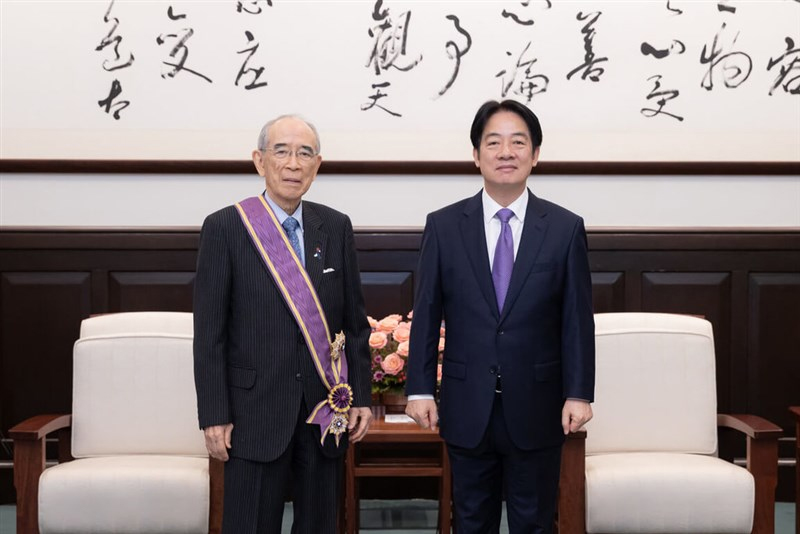President Lai Ching‑te awarded the Order of the Brilliant Star with Grand Cordon to Mitsuo Ohashi, former chair of the Japan‑Taiwan Exchange Association (JTEA), in recognition of over 14 years of diplomacy that helped cement Taiwan–Japan relations .
Why It Matters
- Diplomatic Symbolism in Action
Amid rising geopolitical tension across the Taiwan Strait and the Indo‑Pacific, this award underscores Taiwan’s value of international friendship—especially with like‑minded partners such as Japan. - Institutional Milestone
Under Ohashi, Tokyo and Taipei formalized relations through over 50 agreements on trade, taxation and fisheries. Lauded for the 2017 renaming of both JTEA and Taiwan‑Japan Relations Association, he helped anchor a durable bilateral framework. - Future-Focused Cooperation
President Lai emphasized a roadmap for further integration through economic partnerships, non‑red supply chains, as well as expanded collaboration on semiconductors, energy, and AI—aligning with global trends in economic security.
🎯 Original Insights
- Awarding Soft Power Beyond Borders
By recognizing a foreign diplomat, Taiwan projects soft power, signalling that democratic partnerships are bilateral, long-term, and supported at the highest levels. - Economic Security Tie-In
The focus on supply-chain cooperation and EPAs reflects Taiwan’s strategy to diversify away from China-linked vulnerabilities—a shared priority for Japan and other democracies navigating U.S.–China tensions. - Civil Society Diplomacy
Ohashi’s new role as head of Japan’s branch of the World Federalist Movement signals Taiwan’s intent to elevate public-diplomacy partnerships—not merely through government-to-government ties, but via global civil networks.
FAQs
What is the Order of Brilliant Star?
A prestigious civilian decoration established in 1941, it recognizes significant contributions to Taiwan’s development. The Grand Cordon represents one of the highest ranks.
Who is Mitsuo Ohashi?
Leader of Japan–Taiwan Exchange Association (2011–2025). He spearheaded formal agreements across 50+ areas and played a key role in institutionalizing bilateral links.
Why is this award significant now?
The award comes at a strategic moment, reinforcing Taiwan’s global alliances as Beijing increases military pressure and domestic political shifts occur worldwide.
What’s next for Taiwan–Japan collaboration?
Lai highlighted three strategic areas: rapid negotiating of an EPA, building secure “non‑red” (non-China-linked) supply chains, and deeper collaboration in semiconductors, energy, and AI.
How will this impact public diplomacy?
Ohashi’s leadership role in the World Federalist Movement suggests stronger engagement with international civil society, aiming to elevate Taiwan’s global voice beyond formal state channels.


